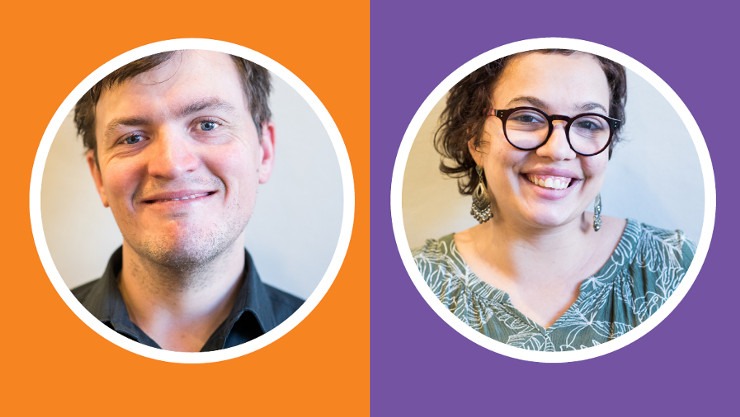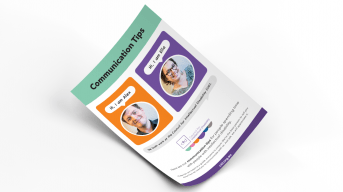
Want to communicate better with people with intellectual disability?
By Alexander Elliott
Ella Darling and I are passionate about improving communication for people with cognitive disability.
Together, we have made a tip sheet that can help people communicate with people with disability.
Communication is key to making us feel important, included and comfortable.
For example, when I received a call for jury duty, I had to give reasons and evidence as to why I could not be called up. I found the website confusing because it was badly written. I needed my Mum to help me out and together we found out the option to follow in order to get me excused from jury duty.
It left me angry that a website for such an important part of our society was difficult to operate. It could leave a person with disability confused and in trouble with the law.
Ella and I believe that access to information is a human right. People with disability need information they can understand.
People ignore us or speak for us. It leaves us feeling annoyed.
We looked at lots of different personal and life factors and formulated a series of tips we believe will help communication.
Here are a few examples of the tips we developed:
- Body language is important
- Give us time
- Explain words in everyday language. Avoid slang or jargon
- Always check if we want a supporter
- Use Easy Read wherever possible
- Take extra care over the phone
And most importantly, talk to us: the person with the disability is the expert. They have lived the experience and have the best knowledge.
People who may be able to use this tip sheet are those who need to communicate with people with cognitive disabilities. For example:
- Doctors and medical staff
- Business owners and staff who serve customers with disability
- Employers
The tip sheet could even be used as a training device.
By making this resource we hope that people are able to design and create information and websites that people with disability can access and easily understand.
Accessible information is our right!



 1800 424 065
1800 424 065 















